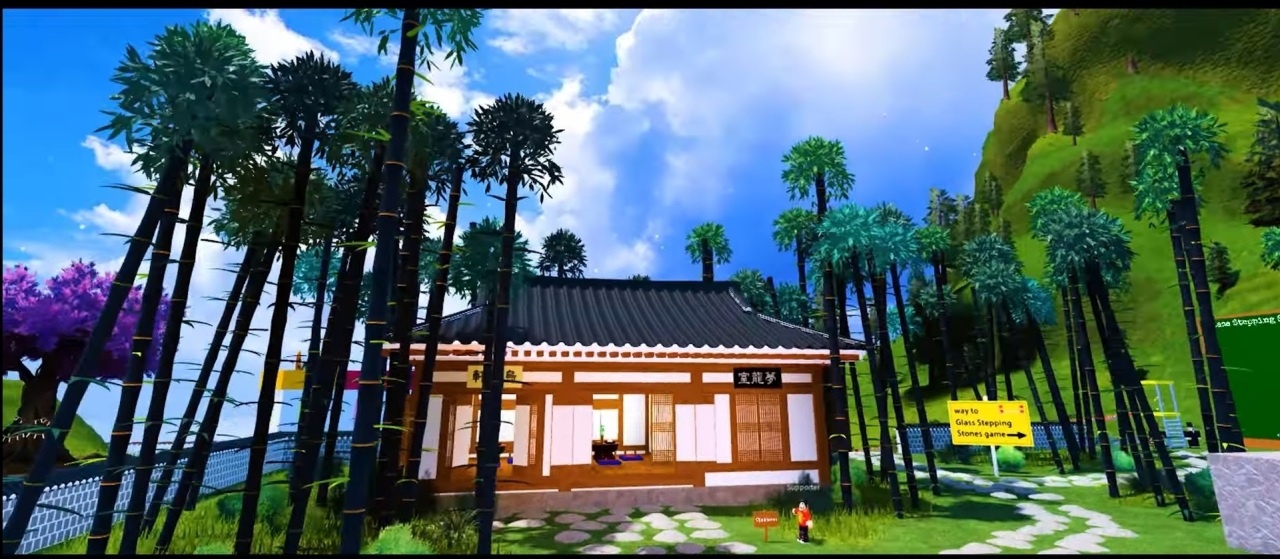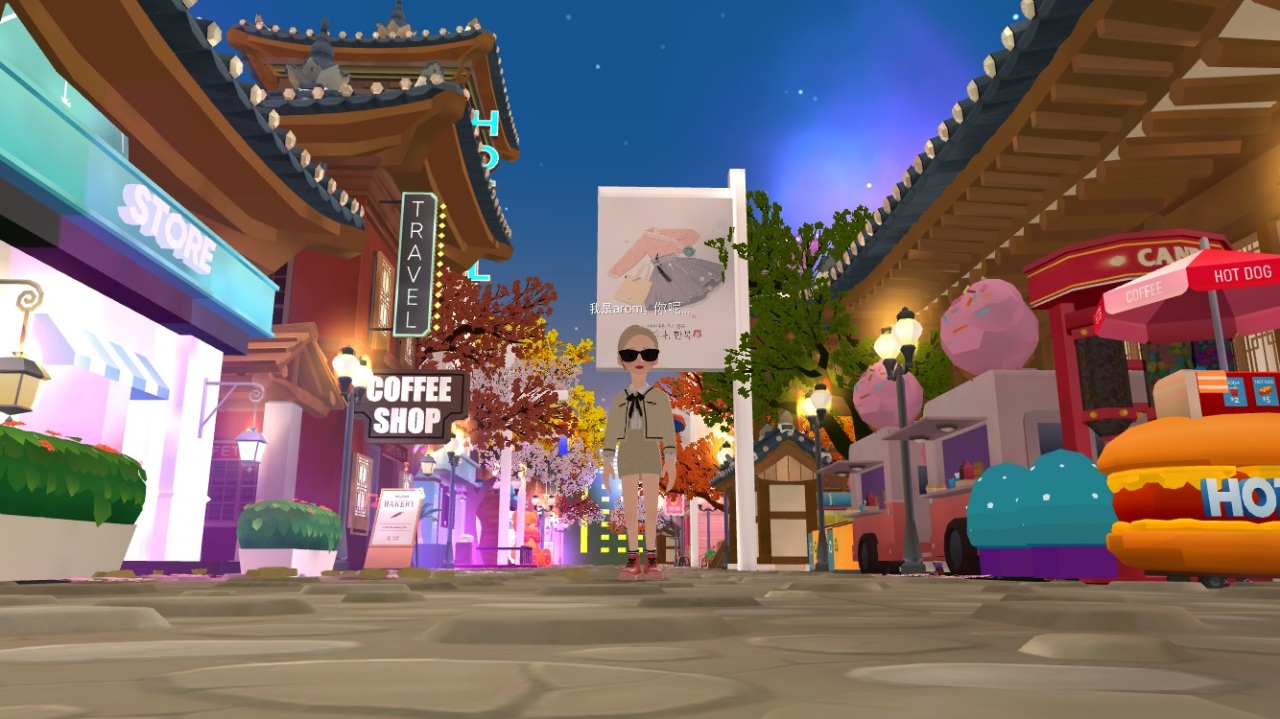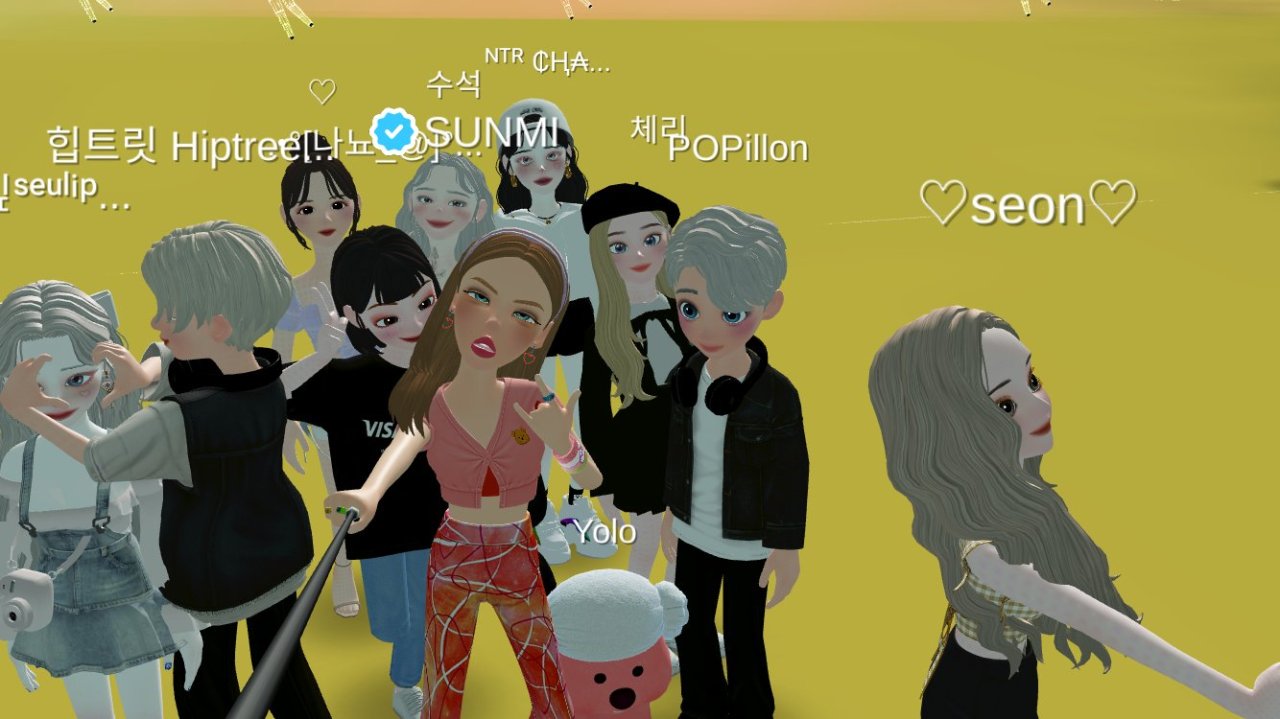
The metaverse, regarded as a technology whose emergence was seen as timely in the pandemic era, has cemented its position as a key avenue to pushing cultural experiences to another level.
While prepandemic cultural contents were based on face-to-face experience, the virtual world-centered metaverse emerged as a notable alternative, offering a similar experience as face-to-face encounters as the coronavirus and a multitude of its variants have changed the way people interact.
With the advances in graphics technology, network services and smartphones, the digital universe has won the hearts of millennials and Gen Z -- people born between the 1980s and the 2010s -- to emerge as mainstream culture.
Attractions moved to metaverse
While prepandemic cultural contents were based on face-to-face experience, the virtual world-centered metaverse emerged as a notable alternative, offering a similar experience as face-to-face encounters as the coronavirus and a multitude of its variants have changed the way people interact.
With the advances in graphics technology, network services and smartphones, the digital universe has won the hearts of millennials and Gen Z -- people born between the 1980s and the 2010s -- to emerge as mainstream culture.
Attractions moved to metaverse

For the Korea Tourism Organization, metaverse marketing is no longer an option, but an imperative in promoting Korean tourism.
Zepeto, Korea’s top metaverse platform created by IT behemoth Naver, surpassed a total of 200 million accumulated users, of which 80 percent are in their teens and 20s. Notably, 90 percent of the users were from overseas, according to Naver.
US-based metaverse giant Roblox reached over 47.3 million daily users in the third quarter of 2021, according to analytics firm Statista. The data tracker says almost 50 percent of its users are under the age of 13.
Recognizing the fast-rising popularity of the digital technology among the younger generation, the KTO introduced a new map presenting the unique charms of five Korean cities -- Busan, Mokpo in South Jeolla Province, Andong in North Gyeongsang Province, Gangneung in Gangwon Province and Jeonju in North Jeolla Province.
Under the theme of “K-treasure city,” famous landmarks and tourist attractions, such as Gwangan Grand Bridge and Gamcheon Culture Village in Busan, UNESCO World Heritage Dosan Seowon -- a Korean Neo-Confucian academy -- in Andong, the famous coffee street at Anmok Beach in Gangneung and more, were made available for Zepeto users to explore digitally.
Meanwhile, the organization offered its own “Squid Game in Gangneung, Korea” using the metaverse platform Roblox. There the users’ avatars can play popular Korean games, take pictures at the city’s tourist attractions and taste Gangneung’s specialties, including rice cake and soft tofu ice cream.
More than 70,000 users have played the game to date.
“The millennials and Gen Z lead the global trend in tourism. Metaverse marketing strategy will not only build a positive image about South Korean tourism, but also provide an important foundation for South Korean tourism to achieve growth in both quantity and quality,” KTO’s Executive Director Zhu Sang-yong said.
Virtual tourism is not a concept that is only welcomed by overseas tourists.
When the operator of South Korea’s top convenience store chain opened the first metaverse convenience store, CU Zepeto Han River branch, in August, local Zepeto users were excited to experience a new way of spending time with friends without wearing masks.
“I saw many celebrities eating instant ramen and kimbap on a bench at Han River parks. It was so cool to do that with my friends in Zepeto,” a middle school student surnamed Park from Changwon, South Gyeongsang Province, told The Korea Herald on Dec. 18.
“I have never been to Seoul yet, but eating ramen in Zepeto was a cool experience,” Park added.
Elevating K-pop experience
Zepeto, Korea’s top metaverse platform created by IT behemoth Naver, surpassed a total of 200 million accumulated users, of which 80 percent are in their teens and 20s. Notably, 90 percent of the users were from overseas, according to Naver.
US-based metaverse giant Roblox reached over 47.3 million daily users in the third quarter of 2021, according to analytics firm Statista. The data tracker says almost 50 percent of its users are under the age of 13.
Recognizing the fast-rising popularity of the digital technology among the younger generation, the KTO introduced a new map presenting the unique charms of five Korean cities -- Busan, Mokpo in South Jeolla Province, Andong in North Gyeongsang Province, Gangneung in Gangwon Province and Jeonju in North Jeolla Province.
Under the theme of “K-treasure city,” famous landmarks and tourist attractions, such as Gwangan Grand Bridge and Gamcheon Culture Village in Busan, UNESCO World Heritage Dosan Seowon -- a Korean Neo-Confucian academy -- in Andong, the famous coffee street at Anmok Beach in Gangneung and more, were made available for Zepeto users to explore digitally.
Meanwhile, the organization offered its own “Squid Game in Gangneung, Korea” using the metaverse platform Roblox. There the users’ avatars can play popular Korean games, take pictures at the city’s tourist attractions and taste Gangneung’s specialties, including rice cake and soft tofu ice cream.
More than 70,000 users have played the game to date.
“The millennials and Gen Z lead the global trend in tourism. Metaverse marketing strategy will not only build a positive image about South Korean tourism, but also provide an important foundation for South Korean tourism to achieve growth in both quantity and quality,” KTO’s Executive Director Zhu Sang-yong said.
Virtual tourism is not a concept that is only welcomed by overseas tourists.
When the operator of South Korea’s top convenience store chain opened the first metaverse convenience store, CU Zepeto Han River branch, in August, local Zepeto users were excited to experience a new way of spending time with friends without wearing masks.
“I saw many celebrities eating instant ramen and kimbap on a bench at Han River parks. It was so cool to do that with my friends in Zepeto,” a middle school student surnamed Park from Changwon, South Gyeongsang Province, told The Korea Herald on Dec. 18.
“I have never been to Seoul yet, but eating ramen in Zepeto was a cool experience,” Park added.
Elevating K-pop experience

The metaverse has been credited for elevating K-pop’s global popularity to yet another level as entertainment companies began offering real metaverse experiences to fans.
Started by American hip-hop musician Travis Scott’s Fortnite concert, the metaverse concert is no longer a new concept to music fans.
In Korea, the Ministry of Culture, Sports and Tourism held a metaverse concert, K-Vibe Festa, starring diva BoA, girl group aespa, rapper Wonstein and more, in early December.
Korean hip-hop icons Tiger JK, Yoon Mi-rae, rapper Bizzy and singer BiBi also successfully launched their own metaverse concert via Cryptovoxels on Dec. 27.
Aiming to enhance the K-pop fans’ cultural experience, entertainment companies are collaborating with the game industry to showcase artists’ newly released albums, hosting dance challenges and fan meetings there too.
Singer Sunmi showcased her comeback stage via the Zepeto platform in July.
The event involved a surprise release of the title song “You Can’t Sit with Us” as background music in the digital world and her signature dance moves.
Participants also got a chance to win a signed album and digital coins to buy the outfits worn by the artist in her new music video if they found nine unreleased photos of Sunmi for the upcoming album in the metaverse.
“A lot of fans enjoyed the metaverse event, because they were able to take an active part, which differs from video streaming. At a time when the artists and fans have few opportunities to communicate and meet each other, metaverse helped to quench the fans’ thirst to form a bond with their beloved artist,” an official from Sunmi’s label Abyss Co. told The Korea Herald on Friday.
The ever-growing concept of metaverse is not limited to the tourism and music sectors. Various services based on the metaverse provide a window of opportunity for the creation of a new cultural genre.
Zepeto dramas, a series created using stop motion images and clips of Zepeto avatars, could be the next fad after webtoons, a type of digital comic that originated in South Korea.
The projects, ranging from horror to school romance, are uploaded on YouTube, attracting millions of subscribers and views, just like any other videos online.
Started by American hip-hop musician Travis Scott’s Fortnite concert, the metaverse concert is no longer a new concept to music fans.
In Korea, the Ministry of Culture, Sports and Tourism held a metaverse concert, K-Vibe Festa, starring diva BoA, girl group aespa, rapper Wonstein and more, in early December.
Korean hip-hop icons Tiger JK, Yoon Mi-rae, rapper Bizzy and singer BiBi also successfully launched their own metaverse concert via Cryptovoxels on Dec. 27.
Aiming to enhance the K-pop fans’ cultural experience, entertainment companies are collaborating with the game industry to showcase artists’ newly released albums, hosting dance challenges and fan meetings there too.
Singer Sunmi showcased her comeback stage via the Zepeto platform in July.
The event involved a surprise release of the title song “You Can’t Sit with Us” as background music in the digital world and her signature dance moves.
Participants also got a chance to win a signed album and digital coins to buy the outfits worn by the artist in her new music video if they found nine unreleased photos of Sunmi for the upcoming album in the metaverse.
“A lot of fans enjoyed the metaverse event, because they were able to take an active part, which differs from video streaming. At a time when the artists and fans have few opportunities to communicate and meet each other, metaverse helped to quench the fans’ thirst to form a bond with their beloved artist,” an official from Sunmi’s label Abyss Co. told The Korea Herald on Friday.
The ever-growing concept of metaverse is not limited to the tourism and music sectors. Various services based on the metaverse provide a window of opportunity for the creation of a new cultural genre.
Zepeto dramas, a series created using stop motion images and clips of Zepeto avatars, could be the next fad after webtoons, a type of digital comic that originated in South Korea.
The projects, ranging from horror to school romance, are uploaded on YouTube, attracting millions of subscribers and views, just like any other videos online.

“I think you should debut as a television director or a screenwriter for a local broadcaster,” a netizen commented on a Zepeto drama on YouTube.
“Our metaverse platform Zepeto can be promoted in two different ways. With the ‘out to in’ strategy, collaborations with global companies, including Christian Dior and Samsung, can be perfect example. But, ‘in and out’ strategy requires actual Zepeto users to promote the metaverse concept outside of the virtual world. This effort is slowly taking shape as more Gen Z users become engaged with the metaverse. And Zepeto drama is definitely one of them,” a Naver official told The Korea Herald on Thursday.
“Zepeto drama producers, writers, avatars and Zepeto designers are becoming the talk of the town. Though people of the older generation might have a hard time comprehending this change, this is definitely happening,” the official added.
“A metaverse industrial age might have arrived even before we recognize it. Similar to Cyworld, Korea’s pioneering social website with a 2D avatar from the early 2000s, the metaverse is the new generation’s playground,” he said.
By Lee Si-jin (sj_lee@heraldcorp.com)
“Our metaverse platform Zepeto can be promoted in two different ways. With the ‘out to in’ strategy, collaborations with global companies, including Christian Dior and Samsung, can be perfect example. But, ‘in and out’ strategy requires actual Zepeto users to promote the metaverse concept outside of the virtual world. This effort is slowly taking shape as more Gen Z users become engaged with the metaverse. And Zepeto drama is definitely one of them,” a Naver official told The Korea Herald on Thursday.
“Zepeto drama producers, writers, avatars and Zepeto designers are becoming the talk of the town. Though people of the older generation might have a hard time comprehending this change, this is definitely happening,” the official added.
“A metaverse industrial age might have arrived even before we recognize it. Similar to Cyworld, Korea’s pioneering social website with a 2D avatar from the early 2000s, the metaverse is the new generation’s playground,” he said.
By Lee Si-jin (sj_lee@heraldcorp.com)



















![[Today’s K-pop] Treasure to publish magazine for debut anniversary](http://res.heraldm.com/phpwas/restmb_idxmake.php?idx=642&simg=/content/image/2024/07/26/20240726050551_0.jpg&u=)